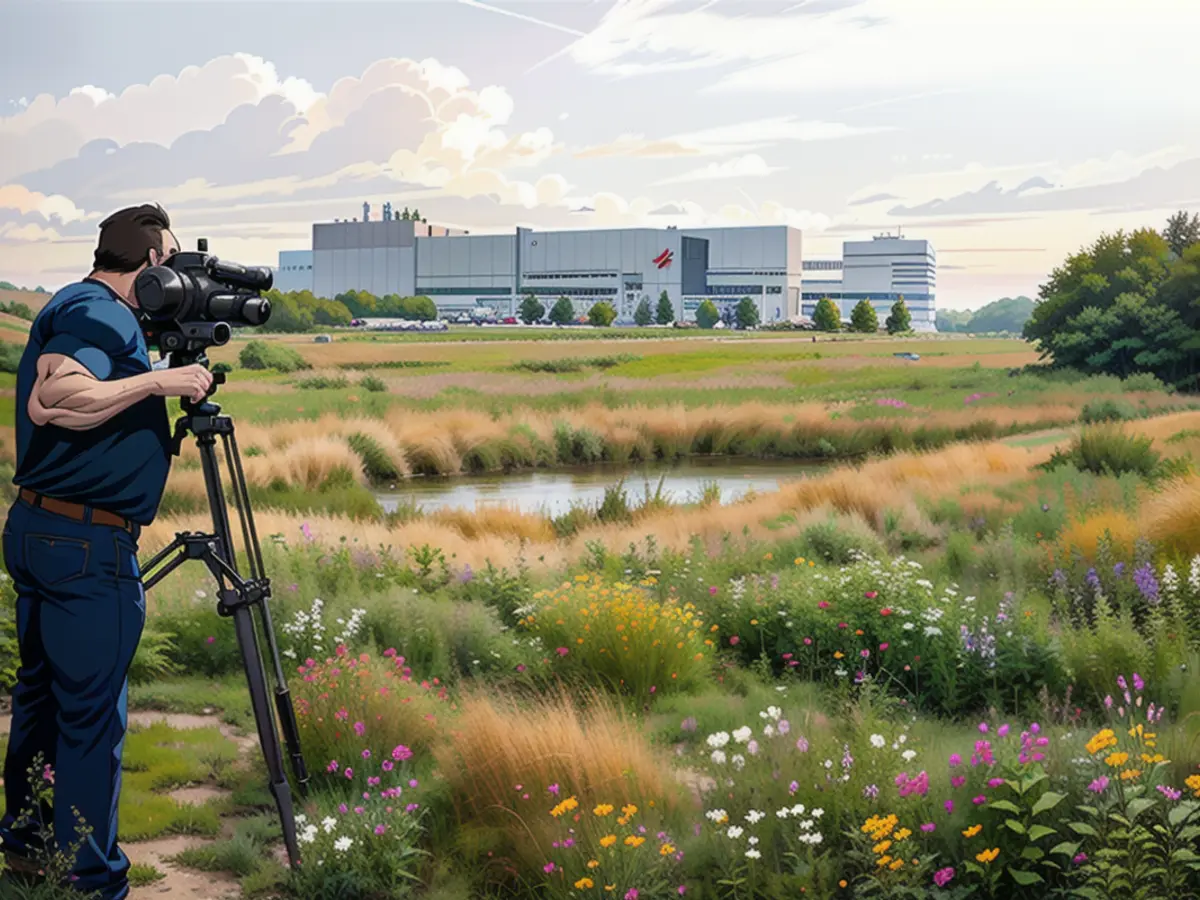Is the surge in high-tech billions powering up the Eastern region?
The eastern region of Germany is receiving significant investments due to state funding, with companies like Intel and TSMC planning to set up operations there. This has led to optimism among economic experts that the local small and medium-sized businesses will also benefit. Despite the ongoing economic crisis, the eastern part of the country seems to be fairing better than other regions of Germany.
These massive constructions projects are referred to as "Giga-Factory" or "Mega-Plant." Intel's plan in Magdeburg could potentially result in investments worth 30 billion euros. In Brandenburg, Tesla has already established its electric car factory, which the founder Elon Musk calls "Gigafactory," employing about 10,000 people. Another technology giant, TSMC, is looking to set up shop in Dresden. Most economists agree that Eastern Germany has a chance of catching up with the western part and even has some advantages for these kinds of investments, especially due to the rise in renewable energy. Hanno Kempermann, the managing director of the Institute of the German Economy (IW) in Cologne, stated that green electricity has become essential for many industrial companies.
Moreover, the economic situation is hitting the southern part of Germany harder than the others, according to various research institutes. The upcoming state elections in Thuringia, Saxony, and Brandenburg in September are a concern for business leaders in case the far-right party, AfD, gains strength.
The large investments made for Intel and TSMC are quite extraordinary, with the federal government contributing around ten or five billion euros each. However, Eastern Germany is not as involved in global trade as the southern part of the country, and it is relatively less populated, meaning there's more available space for new projects. The president of the Leibniz Institute for Economic Research in Halle (IWH), Reint Gropp, believes that subsidies and the availability of space are key factors in attracting these companies to the region.
Although Eastern Germany isn't as strongly involved in world trade, it's currently experiencing mixed fortunes. Economic researchers observe that it's doing a bit better than the west at the moment. The situation elsewhere, particularly in the south, seems to be more challenging, with numerous car manufacturers, suppliers, and chemical companies announcing layoffs and saving programs.
However, the mood among businesses is not very positive, with many companies grappling with uncertainty, and some industries feeling the crunch. Solar manufacturers, struggling with competition from China, have called for government support. Meyer Burger has given up on a site in Saxony's Freiberg, while others want to reduce production. The automotive market is faltering, and the growth of electric mobility has stalled, as evident with planned Tesla settlements in Lausitz. The EU Commission has not yet given its approval for an Intel chip factory in Magdeburg, and the water consumption concerns are mounting. Tesla is also laying off workers and facing protests.
What remains to be seen is how many suppliers will actually set up operations alongside these major projects. Gropp believes that more investment in research and universities is needed. Despite the current setbacks, Kempermann is more optimistic, arguing that the electromobility market will continue to expand, and solar and wind energy will also see significant growth in the coming years.
However, the shortage of skilled workers is becoming a substantial challenge for these companies. Around 400,000 people leave the labor market in Germany each year, and the shortage is more pronounced in Eastern Germany due to its demographic changes. The lack of skilled workers has already become a hurdle for economic development in the region. Brandenburg's Minister President Dietmar Woidke warned in 2023 that the shortage of skilled workers is limiting the region's growth potential. The growing influence of the AfD in the upcoming elections is causing concerns among intelligent minds about the brain drain from the region.
Overall, there's a sense of optimism about the potential benefits of these projects for the region but also uncertainty about the future, as the challenges of the labor market, international economic conditions, and political factors loom large.
Read also:
Due to these technological investments, East Germany is attracting technology groups like TSMC, who are considering setting up operations in Dresden. This influx of high-tech companies could lead to substantial job creation and boost the region's economy.
Despite the challenges in attracting and retaining skilled talent, the investments in technology sectors in East Germany, such as those made by Intel and TSMC, indicate a promising future for the region's technological advancement.








